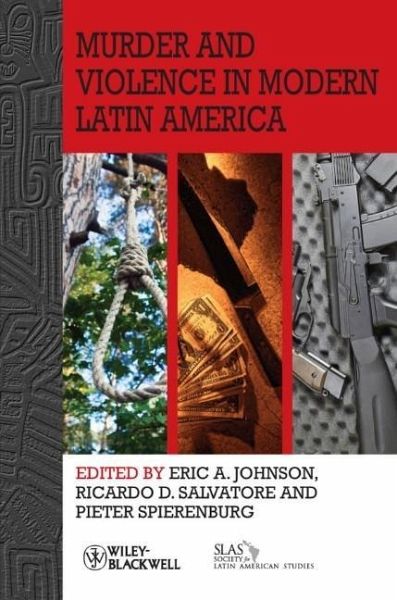
Murder and Violence in Modern Latin America
Versandkostenfrei!
Versandfertig in über 4 Wochen
34,99 €
inkl. MwSt.

PAYBACK Punkte
17 °P sammeln!
Written by leading scholars from the Americas and Europe, this is a thorough assessment of state-supported murder and violence in Latin America.Examines the trajectory of murder and violence in the region over the past two centuries and elucidates theories and trends regarding violence since the end of colonial rule Covers topics such as "the disappeared," the rise of drug cartels and narco-violence, physical violence against wives, the judging and sentencing of violent crimes, genocide, and state terrorism Explains and applies macro-level theories regarding the rise of civilization, state bui...
Written by leading scholars from the Americas and Europe, this is a thorough assessment of state-supported murder and violence in Latin America.
Examines the trajectory of murder and violence in the region over the past two centuries and elucidates theories and trends regarding violence since the end of colonial rule
Covers topics such as "the disappeared," the rise of drug cartels and narco-violence, physical violence against wives, the judging and sentencing of violent crimes, genocide, and state terrorism
Explains and applies macro-level theories regarding the rise of civilization, state building, and violence to contemporary Latin America
Demonstrates the complexity of an issue at the forefront of life and politics in the region today
Examines the trajectory of murder and violence in the region over the past two centuries and elucidates theories and trends regarding violence since the end of colonial rule
Covers topics such as "the disappeared," the rise of drug cartels and narco-violence, physical violence against wives, the judging and sentencing of violent crimes, genocide, and state terrorism
Explains and applies macro-level theories regarding the rise of civilization, state building, and violence to contemporary Latin America
Demonstrates the complexity of an issue at the forefront of life and politics in the region today


